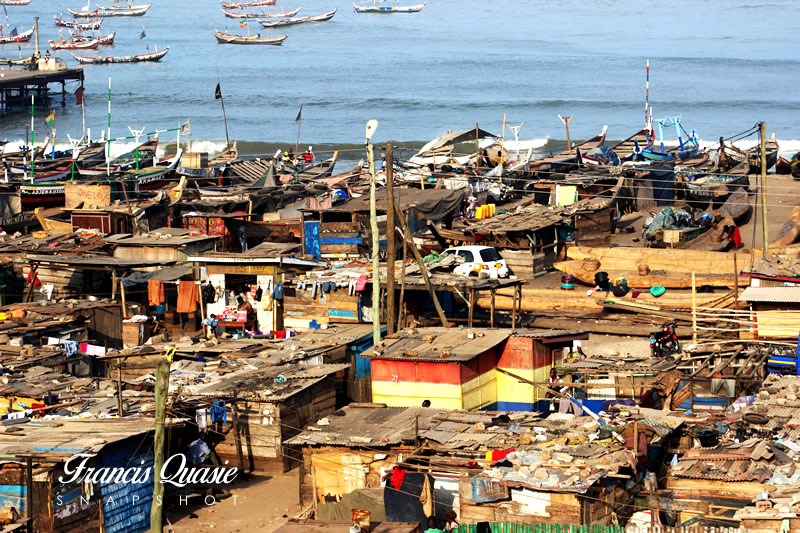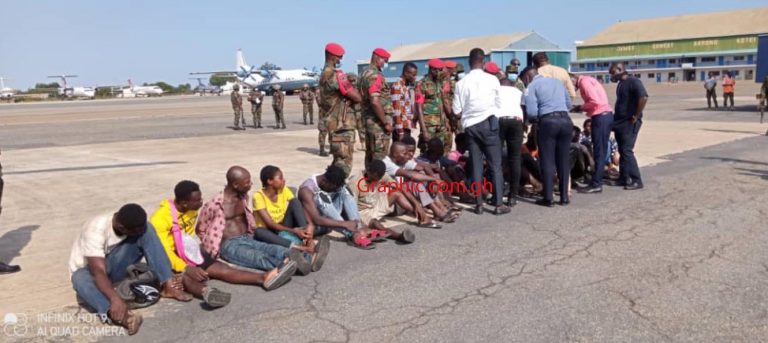Fears Rise For Ghanaian Capital’s Urban Poor In Ongoing Lockdown
- Home
- Fears Rise For Ghanaian Capital’s Urban Poor In Ongoing Lockdown

Fears Rise For Ghanaian Capital’s Urban Poor In Ongoing Lockdown
 As cases of COVID-19 rise in Ghana, and its capital Accra endures its third week of a partial lockdown, local NGOs, churches and businesses have stepped up campaigns to feed the most vulnerable. But despite the interventions, there are fears of short and long-term repercussions for more than a half-million urban poor.
As cases of COVID-19 rise in Ghana, and its capital Accra endures its third week of a partial lockdown, local NGOs, churches and businesses have stepped up campaigns to feed the most vulnerable. But despite the interventions, there are fears of short and long-term repercussions for more than a half-million urban poor.
Since 2014, Ghanaian chef Elijah Amoo Addo has been redistributing excess food from food manufacturers, distributors and stores to those in need through his NGO Food For All Africa.
When the first cases of COVID-19 were announced in Ghana about a month ago, he knew it would make life harder for the already vulnerable, so he and his network created an emergency intervention program.
Amoo Addo says while the lockdown is needed to stop the spread of COVID-19, it is increasing hardships for the city’s urban poor.
“The anxiety and inaccessibility to food, nutrition and basic essentials keeps increasing, and for us as a non-profit, the little we could do is continue delivering hot meals and food boxes to beneficiaries affected by the pandemic,” he said.
Amoo Addo said there has been a lot of support for his program but more needs to be done to ensure food security in coming months, especially if food prices keep rising.
Abdul-Mujib Salifu, a program manager with the NGO People’s Dialogue on Human Settlements, said that he fears for those in the informal settlements, who usually sell or carry goods in the markets, which are now largely closed due to the lockdown.
“Their situation is more precarious in terms of their daily living conditions than they were. It has become worse because once they are not getting their daily wage, three square meals a day, it’s becoming a challenge,” Salifu said.
Ghana’s Ministry of Food and Agriculture has taken on the task of ensuring that people in the West African country get enough to eat.
Officials are receiving assistance from the United Nations Food and Agriculture Organization and other Rome-based food agencies.
The FAO’s deputy regional representative for Africa, Jocelyn Brown Hall, says the FAO, World Food Program and International Fund for Agricultural Development reviewed the ministry’s plan and found it to be on target.
“All three of us are working with advising the Ministry of Food and Agriculture just to help them stay on course and do the right thing which they are right now, keeping trade going, restricting movement but not for essential workers and ensuring that food can move around the country and go to the people it needs to,” Brown Hall said.
Questions remain about Ghana’s long-term food situation if the crisis drags on. Brown Hall said while Ghana grew plenty of nutritious food, there are concerns over farmers being able to harvest what they have, get it to market and plant for the next season.
Ghana has recorded 566 cases of the coronavirus so far – a relatively high number by African standards to this point, although significantly lower than numbers in many Western countries. The virus has claimed eight lives in Ghana to date.
Source: allafrica.com
Classic Ghana
Classic Ghana brings you into a fun world of arts, entertainment, fashion, beauty, photography, culture and all things in between. Let’s explore these together!


